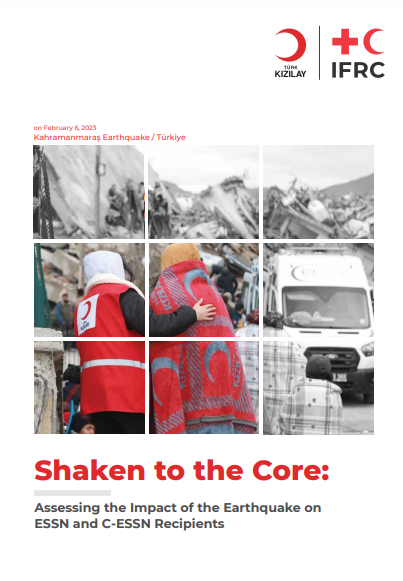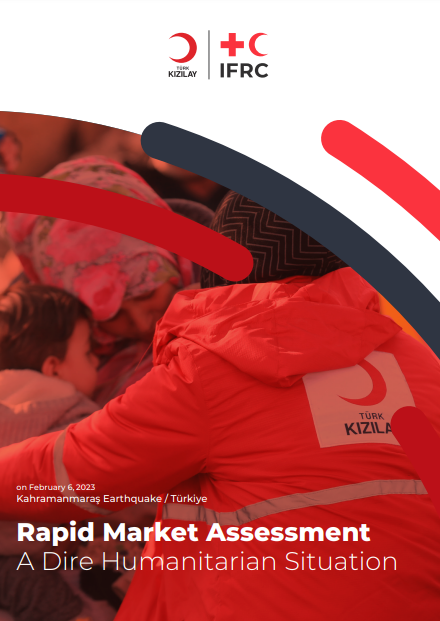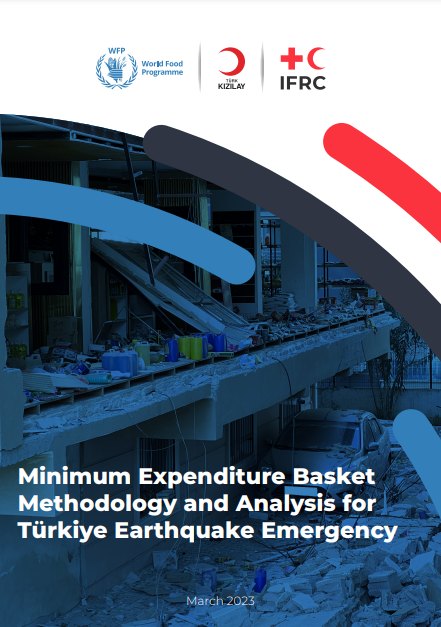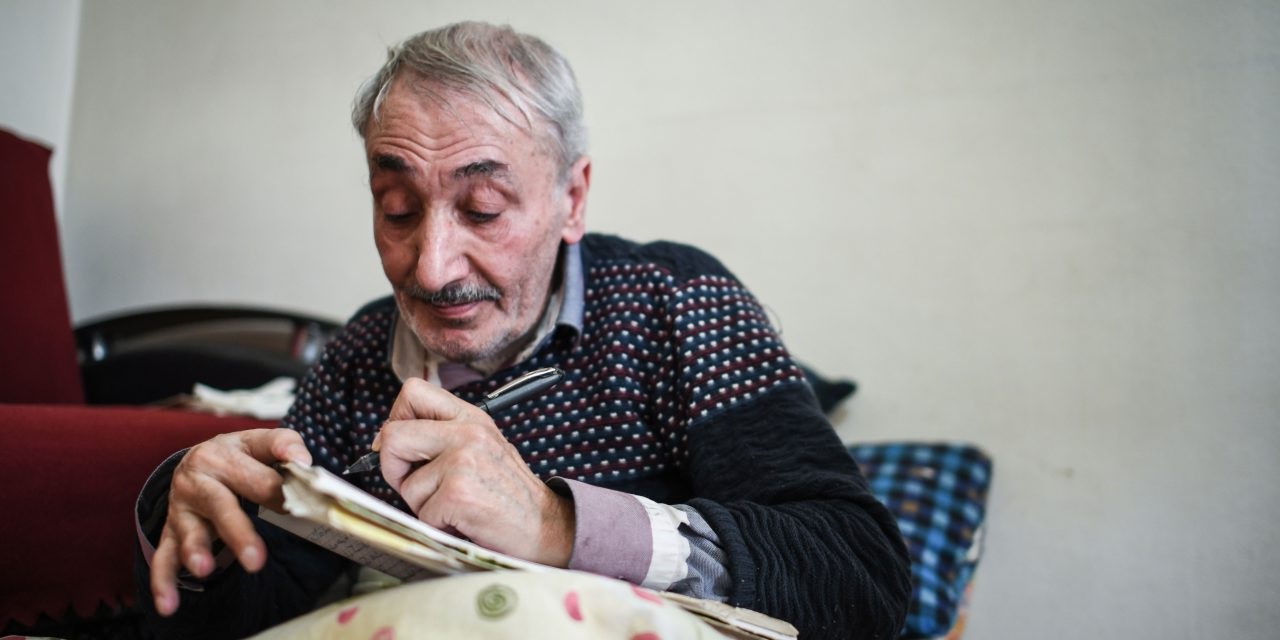Country pages
Cash in Türkiye
Learning from the Turkish Red Crescent’s comprehensive humanitarian cash programmes in Türkiye
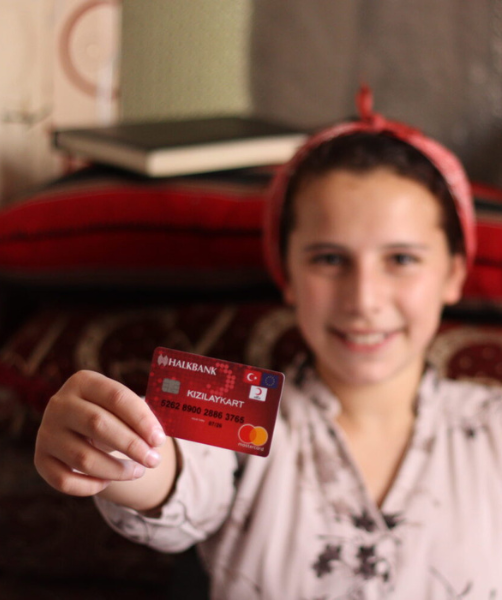
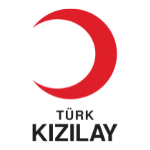
The Turkish Red Crescent (Türk Kızılay) has been at the forefront of large-scale humanitarian cash programming for the last decade. Its sector-leading Kızılaykart Platform enables simultaneous implementation of multiple cash assistance programmes, through the ‘Kızılaykart’ (debit card).
A series of cash assistance programmes are currently supporting vulnerable adults and children living under Temporary Protection, International Protection (applicant status and status holder) or Humanitarian Residence Permit in Türkiye, along with those affected by the 2023 Kahramanmaraş earthquakes.
Find further information and resources on the Kızılaykart cash-based assistance programmes here: (EN) (TR)
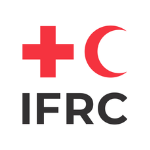
From 2020 to 2023 the Turkish Red Crescent and the IFRC, with funding from the European Union, implemented the Emergency Social Safety Net (ESSN) – which was the largest humanitarian cash programme in the world.
Via the ESSN, more than 1.5 million refugees living in Türkiye received regular monthly cash assistance, enabling people to decide for themselves how to cover their essential needs such as food, rent, medicine, transport and other bills. In 2023 the programme was handed over to the Turkish Ministry of Family and Social Services, who continue implementing the now renamed Social Safety Net (SSN) programme in partnership with the Turkish Red Crescent.
Click here to access the IFRC Go Platform Dashboard for Turkiye
ESSN Learning Exchange
In December 2023 the IFRC and Türk Kızılay organised an Emergency Social Safety Net (ESSN) Learning Exchange event, with the support of the Cash Hub. The event, held in-person in Ankara and attended by remote participants online, was a part of proceedings marking the formal conclusion and handover of the ESSN.
The overall aim of the Learning Exchange was to use experience from ESSN implementation to contribute to the broader body of knowledge on humanitarian emergency cash and social protection programming.
Key sessions looked at the ESSN journey since its inception in 2016; community engagement and accountability (CEA) in large-scale CVA programming; innovative uses of data supporting ESSN design and implementation; programme adaptability and shock responsiveness; the value of positive campaigning via lessons from the ESSN’s unique story telling project; and at enablers for the successful implementation of a large-scale nexus programme.
Find out more here
ESSN Learning Hub: all the key resources produced by Türk Kızılay and the IFRC
ESSN monthly reports: key programmatic highlights
Kahramanmaraş Earthquake response: Find the latest resources
After the earthquake: Rapid Market Mapping and Minimum Expenditure Basket (MEB) analysis

17 November 2022
Emergency Social Safety Net (ESSN): Social assistance for refugees in Türkiye
Type:
LearningOrganization:
Turkish Red Crescent (Türk Kızılay)This fact sheet provides an overview on the implementation of the Emergency Social Safety Net (ESSN) programme for social assistance to refugees in Türkiye since its inception
13 April 2022
Emergency Social Safety Net (ESSN) Satisfaction and Feedback Survey Results Report
Type:
ReportOrganization:
Turkish Red Crescent (Türk Kızılay), Turkish Red Crescent SocietyThe ESSN Satisfaction and Feedback Survey conducted in April 2021 to understand the level of satisfaction among applicants with various stages and components of the ESSN programme.
18 July 2021
Adaptation of Operational Activities to Humanitarian Crises: COVID-19 Pandemic
Type:
LearningOrganization:
Turkish Red Crescent (Türk Kızılay)Despite the ongoing COVID-19 pandemic, Turkish Red Crescent’s (TRC) Kızılaykart Cash Based Assistance Programmes were maintained and adapted to the preventive measures across the country. This study provides information about the adaptation of operational activities due to humanitarian crises and cyclical developments, changing priorities, and experiences gained.
19 June 2021
Intersectoral Vulnerability Study: the Vulnerability Conditions of Refugees in Turkey
Type:
ResearchOrganization:
IFRC, Turkish Red Crescent (Türk Kızılay)The Intersectoral Vulnerability Study assesses the severity of humanitarian conditions of the refugee population in Turkey, building on a tailored analytical framework, a representative sample at regional and group level and the latest methodological developments in intersectoral analysis.
30 April 2021
Emergency Social Safety Net (ESSN) – monthly report March 2021 (Issue n.12)
Type:
ReportOrganization:
Turkish Red Crescent (Türk Kızılay)Short overview of programmatic highlights and achievements from March 2021, as well as information on the use of cash and recipients in Turkey where the ESSN programme has been supporting about 1.8 million refugees a month.
15 April 2021
Exploring the Livelihoods of Women Refugees in Turkey a qualitative study on the Emergency Social Safety Net (ESSN) applicants
Type:
ReportOrganization:
IFRC, Turkish Red Crescent (Türk Kızılay)This study explores the understanding of refugee women under temporary and international protection and their participation in the labour market, their access to opportunities, and the challenges faced. The study is based on ten remote FGDs conducted in September 2020 with 35 ineligible and 24 eligible women from five provinces, namely Istanbul, Ankara, Izmir, Gaziantep, and Hatay.
Page 3 of 8


